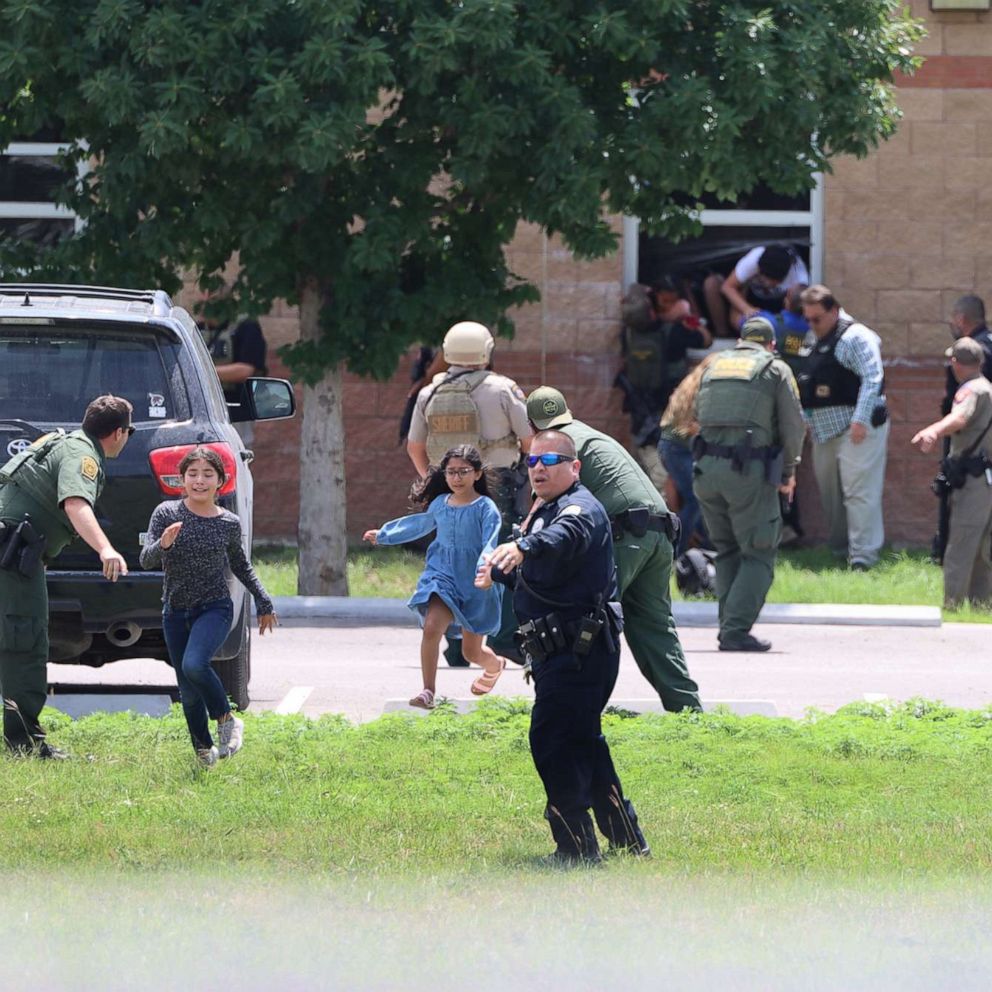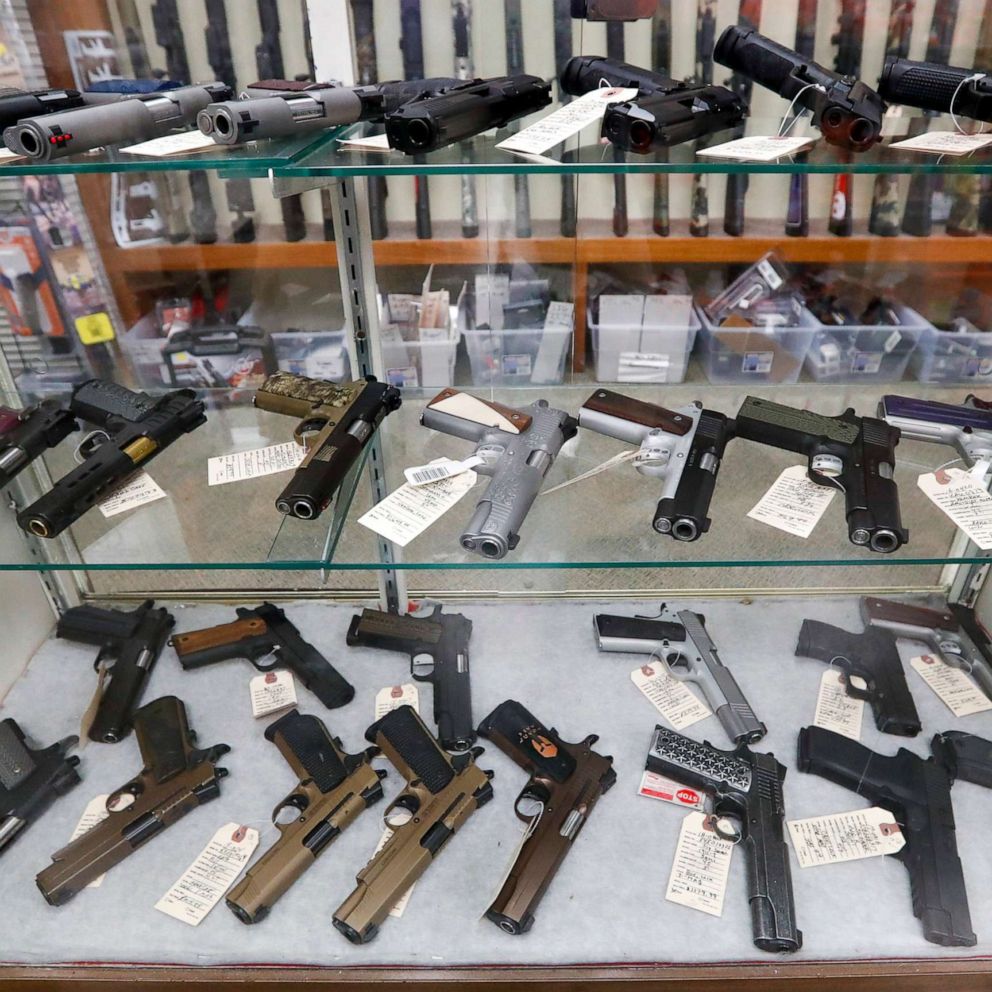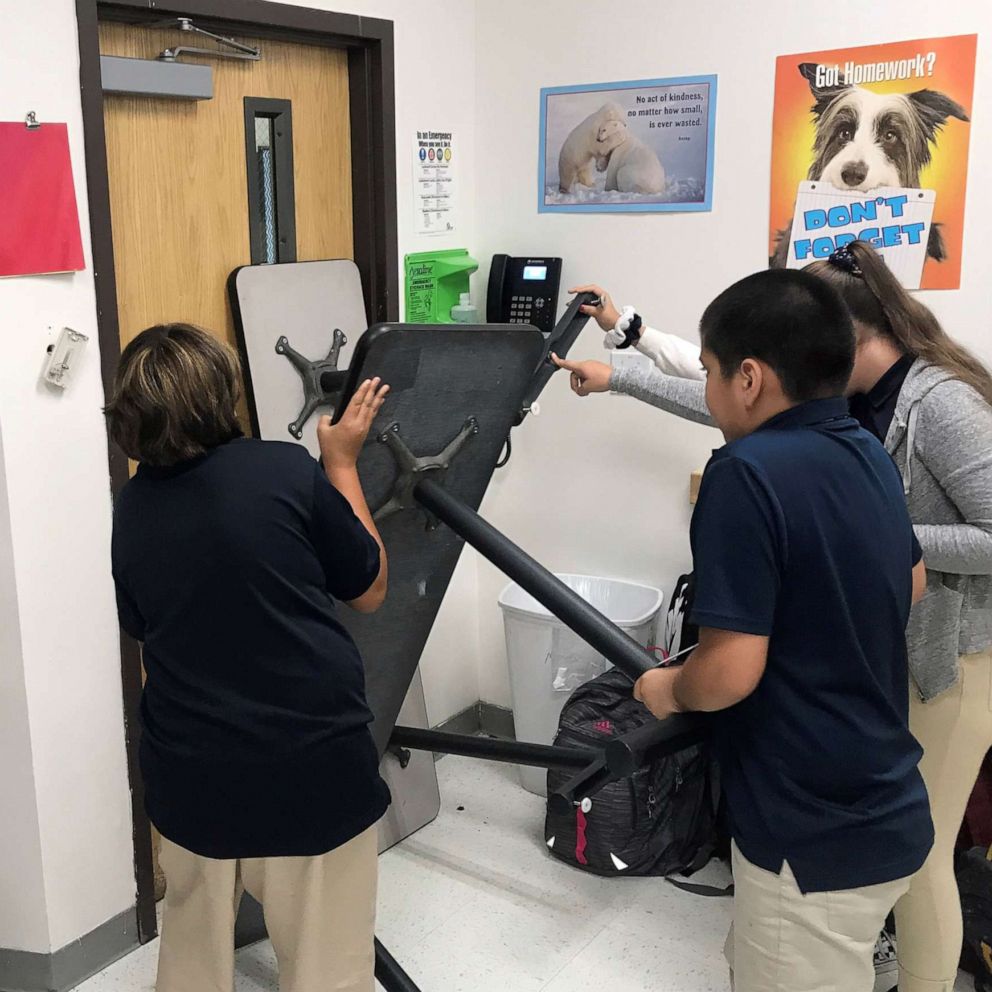Three months after the Robb Elementary School shooting took the lives of two teachers and 19 students in Uvalde, Texas, the topic of school safety continues to be a concern for teachers across the country.
In the 2020-2021 school year, there were at least 145 shootings at elementary and secondary schools, the highest in the last two decades, according to data from the National Center for Education Statistics.
The threat of a school shooting is an ongoing issue that teachers have to face amid other stressors in the workplace, including low pay, increased responsibilities and a shortage of teachers.
Teachers, in turn, have posted on social media about the extra burdens they've taken on as the school safety conversation continues. On TikTok, #schoolsafety has accumulated more than 47 million views overall, and teachers have discussed the precautionary measures they've adopted on behalf of students.
One teacher in Florida, for example, shared a video on TikTok showing her trying a viral hack that uses a classroom chair to prevent a door from being easily opened.
"The things that we have to worry about," the teacher said in the video, viewed over 7,100 times.
Becky Pringle, president of the National Education Association, a union of more than 3 million teachers, told "Good Morning America" the association has made gun control legislation a top priority in order to keep children and teachers safe in schools.
"We need stronger gun laws in this country. We know that this country leads the way, unfortunately, in the world in deaths of students to guns," Pringle said. "We know that assault weapons have no place in our society, certainly not in our schools."
Pringle said the association supports a ban on assault weapons, stronger "red flag" laws, universal background checks and more mental health support in schools as part of a "comprehensive solution" to school safety.
As the new school year begins, "GMA" spoke with three teachers from around the country who shared their realities of what it takes to keep their students and classrooms safe.

Kelsey Vidal, 1st grade teacher in California
I'm doing everything I can to protect my students.
Since her first year of teaching, Kelsey Vidal said she has included physical safety items like a metal barricade bar for her classroom door on her Amazon wish list for her classroom.

After taking part in an active shooter training, called ALICE (Alert, Lockdown, Inform, Counter, Evacuate) Training, with colleagues during her first year of teaching, Vidal said she's taken steps each year to boost security in her public school classroom.
Vidal said during the training, she and her colleagues were given five minutes to lock down a classroom with materials they had on hand such as classroom furniture, cords and ties.
Vidal said having physical barriers like the metal bar, which can rest on a door jamb and lock it down, and adding extra precautions such as a bulletproof backpack and a baseball bat help her "feel a little safer" in the classroom with her young students.


"I've always wanted to be a teacher and I was thinking, 'It's gonna be so much fun. I get to work with kids. I'm gonna have a great school to go to.' I never thought, 'Oh, well let me have these bulletproof things in my classroom in case someone bad ever came onto campus,'" Vidal said.
This school year, Vidal said she feels "as prepared" as she possibly could be, saying, "I'm doing everything I can to protect my students."
Andrew Montzingo, 3rd grade teacher in South Carolina
This is what we have been trained to do. But is it enough?
Over the course of his eight-year teaching career, Andrew Montzingo said he has practiced various drills with students, including lockdown and shelter-in-place drills.

"My whole first month of school, really, I have to take that time to do that, instead of instruction," said Montzingo. "But I'd rather take the whole month of school to practice and then re-practice if my students aren't doing it the correct way that I want them to because I want to know that they're going to be listening to me in that situation and they know that I care for them."
Montzingo said he's confident in the security precautions he and his school district have taken, including regular drill training and cutting back on parental presence inside school facilities. He said he personally also makes sure to keep his classroom door locked at all times and keeps track of his students’ whereabouts.
But he said he also wonders whether he and his school have done enough, especially since the school shooting at Robb Elementary School in Uvalde, Texas.
"This is what we have been trained to do. But is it enough? That's the question," he said. "Is it enough for teachers? Is it enough for the students and staff to make sure that they're coming home every day safe?"
Marissa Minnick-Metcalf, 1st grade teacher in Ohio
I don't keep anything extra in my classroom, but I know that I can make use of what I have around me if we needed it.
Since the school shooting in Uvalde, Minnick-Metcalf told "GMA" she and her colleagues have made it a point to reassure students that school is meant to be a safe space for them.

"We, as teachers, brought forth more understanding to the kids, helping them realize you're safe, these are the things that we have in place, letting them know that, yes, we have cameras in the hallway but those are to keep you safe. They're not to make you feel scared or anything like that."
Minnick-Metcalf said her school has put various safety plans and precautions in place, including shatterproof film on doors, security cameras, locked doors and restrictions on parents' access to the school building, all procedures she said she has confidence in.

On an individual level, Minnick-Metcalf said she has also considered what-if scenarios, but said she doesn't keep additional physical safeguards in the classroom and wouldn't feel safer if teachers were armed inside schools, a new policy that is now allowed in her state of Ohio.
Minnick-Metcalf said she focuses on thinking through what she can use in her classroom as self-defense if needed, pointing to items like her stool.
"I think all of us teachers probably have gone through that same thought of, 'OK, so what would my actions have been?'" she said. "So I don't keep anything extra in my classroom, but I know that I can make use of what I have around me if we needed it."







